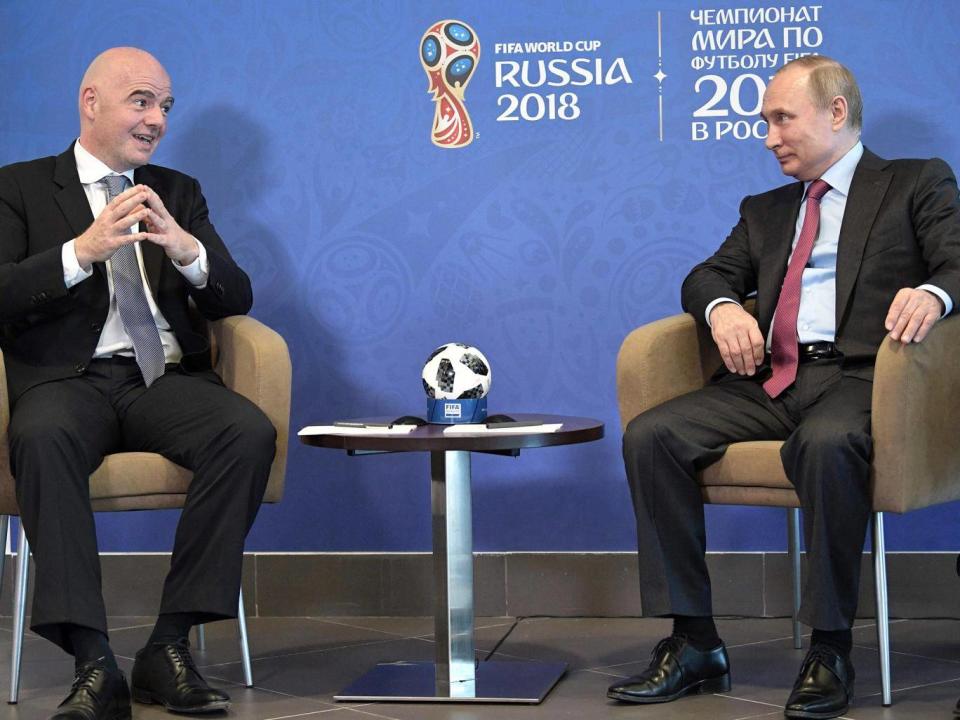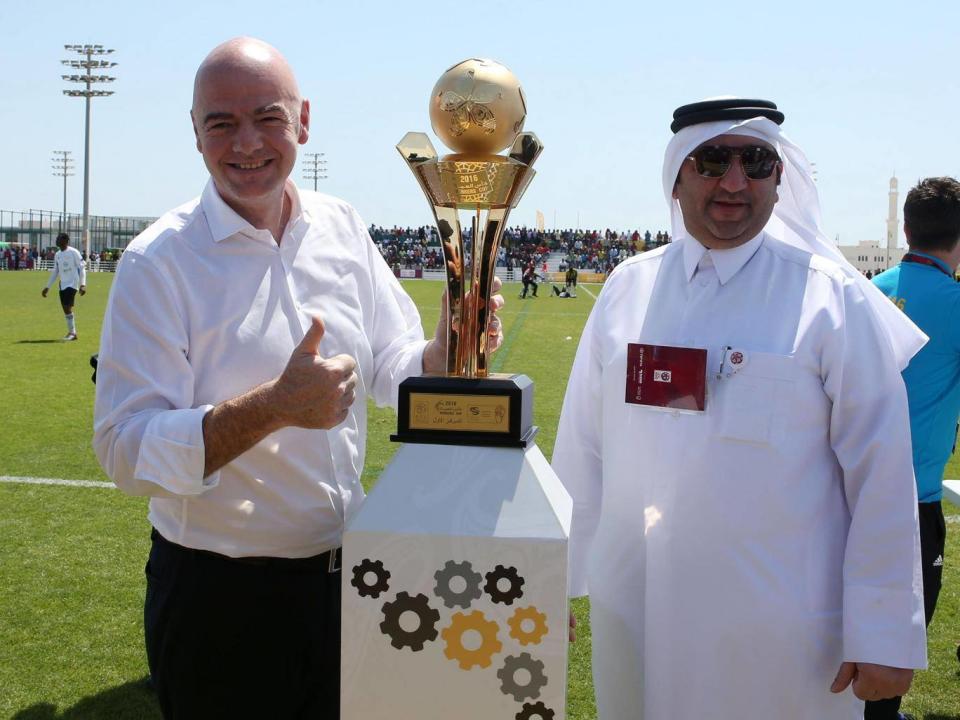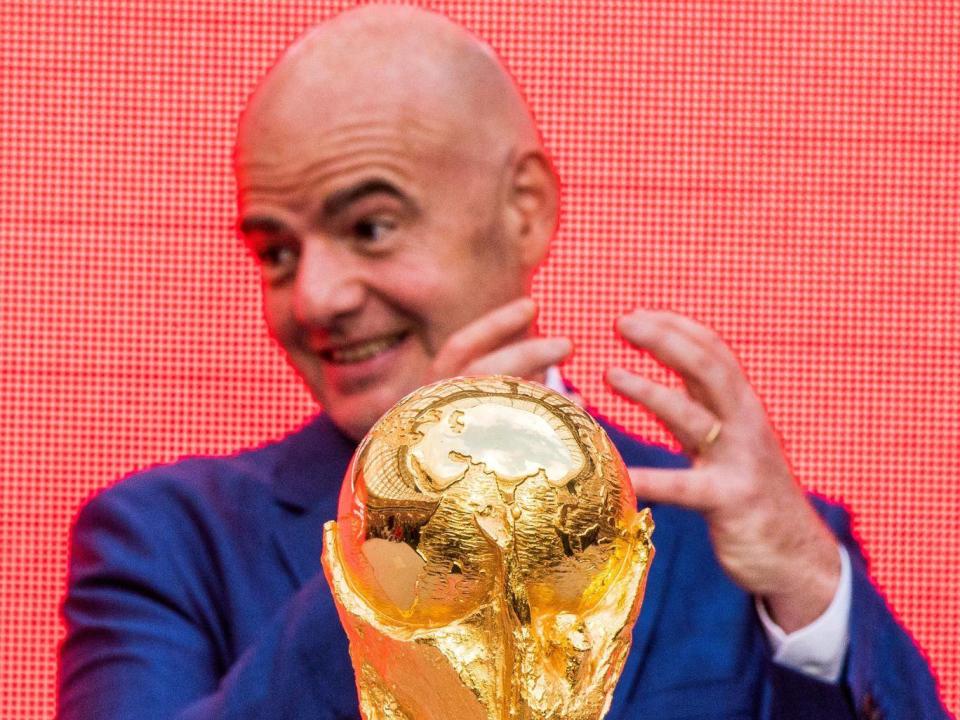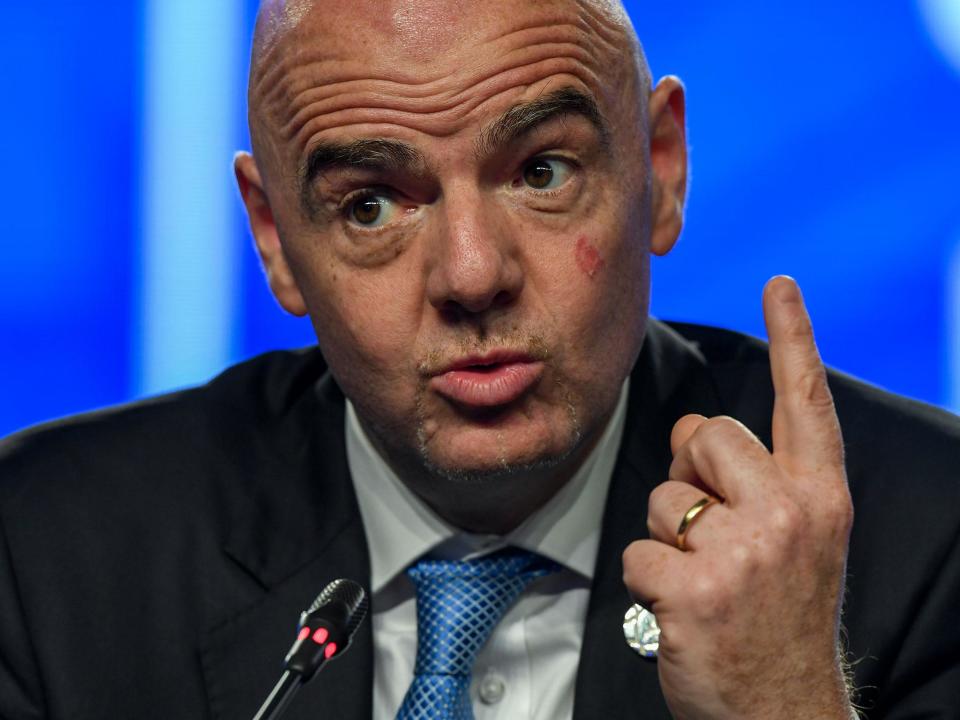How Gianni Infantino’s ambitious Fifa re-election plans could change club football forever
It is nearly two years now that Gianni Infantino has been in control of world football as the president of Fifa.
Though ‘in control’ is a somewhat loaded term, with Infantino entering the final year of his first term with all to play for but increasingly feeling like something of a hostage to fortune.
Infantino has some major events on the horizon. On June 13, the host of the 2026 World Cup will be chosen in Moscow. On the eve of the 2018 edition with all its controversies from inception to computers being destroyed to politics to doping, Infantino and Fifa could once again find themselves under the microscope should Morocco’s bid win.
There are only two bids for the 2026 tournament which, at current, is set to be the first 48-team World Cup. One is a united bid from the USA, Mexico and Canada which counts on ready-made, modern stadia and fully ready infrastructure while the Moroccan bid is somewhat less convincing. Fortunately for the latter, that hasn’t dissuaded many of the voters who are siding with their more developmental proposal over the ready-made bid being put forward by Concacaf.
READ MORE: The worst signings in Premier League history
Morocco's bids also have a chequered history. Ishmail Bhamjee, a former executive committee member of Fifa, alleged that the Morocco 2010 bid paid bribes to execs including the disgraced former Fifa official and Concacaf president Jack Warner. Bhamjee also claimed that, after discussing votes with other executives, "Morocco actually won the vote to host the World Cup," beating South Africa in the vote to host the 2010 competition only for Fifa to change the result. Fifa denied the allegations.
It is worth noting also that anger at Donald Trump’s administration and its foreign policy has hurt the US-dominated 2026 bid but when positioned against the Moroccan offering and its obvious inadequacies, it provokes the same old questions about Fifa.
Despite the same old questions, this won’t be the same old bidding process. For the first time - after changing its rules in the wake of the corruption scandal that rocked world football’s governing body - Fifa will decide based on the decision of the majority of its 211 member federation’s leaders. Previously the executive committee of 24 people were the only ones who voted.

The problem for Infantino here is optics. Should Morocco, a clearly inferior bid, be awarded the World Cup it will once again dent confidence in Fifa, an organisation that can barely afford a further blow to its reputation. Infantino’s regime would be seen as a continuation of the Sepp Blatter federation, rather than the ‘change’ candidate he positioned himself as, and a controversial decision on the eve of the Russian World Cup is not the best way for the tournament to start.
Then Infantino must navigate Russia 2018, a tournament where anything could happen. A competition has rarely been so ripe for controversy, the combination of an emerging Cold War II between the host country and much of the West, multiplied by the likelihood of the host nation losing interest after bowing out early and adding in the possibility for violence or trouble - as witnessed in Marseille during Euro 2016.
On a more day-to-day basis, the nigh-on certainty of a disastrous situation involving VAR will reflect badly on the game’s governing body. Fifa expects a group of international referees from every corner of the world - Bahrain, Gambia, El Salvador, Tahiti and Ethiopia - to be able to seamlessly integrate video replays into their officiating with no issues. It is an impossibility and likely to end in much anger and embarrassment on the biggest stage.

But even if Infantino escapes the 2026 World Cup bidding process unscathed and then Russia goes off without a hitch, he still needs to come up with something to ensure he is re-elected next June when his first term draws to a close.
How he plans on winning that vote is becoming ever clearer.
The tried and tested method of winning the Fifa presidency is promising more money - in the form of ‘solidarity payments’ - to the constituent nations. More cash for each federation is a guaranteed vote-winner so if you can increase Fifa revenues then there is more money to share around and ensure that you’ll be serving another term in the CEO’s office of world soccer.
It is why football seems obsessed with making tournaments bigger. Infantino is also currently open to a new proposal that wants Qatar to increase the 2022 World Cup to 48 teams, bringing forward an Infantino campaign pledge which originally was only to apply to the 2026 tournament. More teams at the World Cup, more happy member nations. More happy member nations, more money for Fifa.
Infantino’s other plans involve a Global Nations League and a Club World Cup. While the former is of moderate interest and likely to get some of the right people onside, it is the reworking of the Club World Cup that has all the hallmarks of a plan that could change football’s landscape.
Indeed, it could be read as a tacit admission that the club game is where the world’s interest lies. If that’s where people’s interest is then it’s also where people’s money is, and with few now doubting that the Champions League has far surpassed even the World Cup in terms of the quality of football on show, what we are witnessing is Fifa making a proper grab for the money in club football - rather than international - for the first time.
It appears to be a plan that can not fail.
The current Club World Cup is a largely pointless event, cherished by few and ignored by many. Those who compete revel in its temporary importance but for much of the planet it is a series of glorified friendlies between mismatched teams at a time when other, more meaningful club football continues.
What Infantino would like to bring in is the world’s leading clubs playing a 24-team tournament every four years. The biggest clubs from every continent playing a knock-out tournament at a time when no other football is on, backed heavily by sponsors and hosted in sold-out stadia.

It is an attractive proposition, a lucrative one too and it is understood that the idea came to Fifa rather than the other way around. A consortium of Japanese, Chinese and Saudi businessmen approached world football’s governing body with a proposal for this competition and the feeling inside Fifa, sources have told The Independent, is that it is a big-money deal they should accept. Should they be able to make a success of a big club competition then it would mean a huge uptick in revenues for Fifa, not to mention a big political win for Infantino and a likely cementing of his position as president.
That is a lot of ifs though. Infantino has the power to make these new tournaments happen, and should he succeed in harnessing the wealth and popularity of club football then it will likely breathe a new lease of life into Fifa and his presidency.
The problem is that before such a competition could even take place there is so much that could go wrong.
For every day until that presidential election next June, Infantino will be walking a tightrope.

 Yahoo Sport
Yahoo Sport 











































